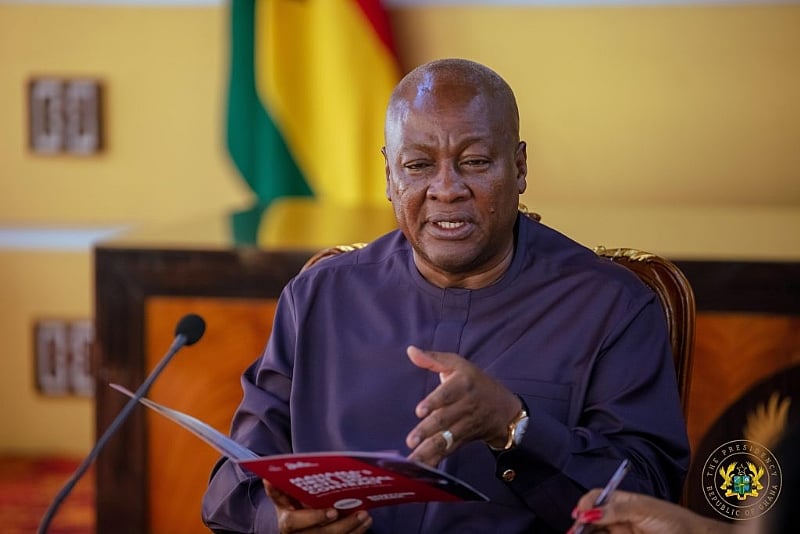President John Dramani Mahama’s meeting with the African Union Advisory Board Against Corruption provided a platform for him to reiterate his administration’s steadfast commitment to upholding the autonomy of Ghana’s anti-corruption institutions. He emphasized the importance of these institutions operating free from political interference, ensuring their effectiveness in investigating and prosecuting corruption cases without prejudice. This commitment, he stated, extends to refraining from influencing the direction of investigations or shielding individuals from accountability, regardless of their political affiliations or past roles within the government. His assurance reinforces the principle that the pursuit of justice and the eradication of corruption should be guided by evidence and due process, not political expediency. This stance is particularly significant given the heightened public scrutiny on transparency and governance in Ghana.
The President’s pledge echoes a broader commitment to strengthening Ghana’s anti-corruption framework. By respecting the independence of these institutions, the government aims to foster public trust in their ability to investigate corruption allegations impartially. This commitment is crucial for creating a level playing field where everyone is held accountable for their actions, regardless of their status or connections. A strong and independent anti-corruption framework is essential not only for promoting good governance and accountability but also for attracting foreign investment and fostering sustainable economic development. It sends a clear signal that Ghana is serious about combating corruption and creating a transparent and predictable business environment.
The timing of President Mahama’s statement is particularly relevant given the ongoing investigations into various corruption cases. His assurance aims to allay public concerns about potential political interference in these investigations. By explicitly stating his non-interference policy, the President seeks to build public confidence in the integrity of the process and the impartiality of the outcomes. This transparency is crucial for maintaining public trust in the government’s commitment to fighting corruption and upholding the rule of law. It demonstrates a willingness to address potential skepticism and reinforces the message that no one is above the law.
President Mahama’s assurance to the African Union delegation underscores Ghana’s commitment to regional and international efforts to combat corruption. By aligning with continental initiatives and best practices, Ghana demonstrates its dedication to promoting good governance and transparency not only within its borders but also across the African continent. This collaborative approach is essential for tackling transnational corruption and fostering a culture of accountability across the region. It also strengthens Ghana’s position as a leader in the fight against corruption and promotes its image as a responsible and transparent actor on the international stage.
The President’s commitment to non-interference in corruption investigations is a crucial step in strengthening the rule of law and promoting good governance in Ghana. By ensuring the independence of anti-corruption institutions, the government creates an environment where corruption can be effectively investigated and prosecuted without fear or favor. This contributes to a more just and equitable society where everyone is held accountable for their actions. Furthermore, a robust anti-corruption framework strengthens democratic institutions, promotes economic development, and enhances Ghana’s reputation on the global stage.
Ultimately, President Mahama’s pledge serves as a powerful message to both domestic and international audiences. It reinforces his administration’s commitment to transparency, accountability, and the rule of law. By upholding the independence of anti-corruption institutions, the government aims to create a more just and equitable society for all Ghanaians. This commitment is not only essential for combating corruption but also for building a stronger, more prosperous, and more democratic Ghana. It sends a clear signal that the fight against corruption is a priority and that the government is dedicated to creating a level playing field where everyone is held accountable for their actions.


